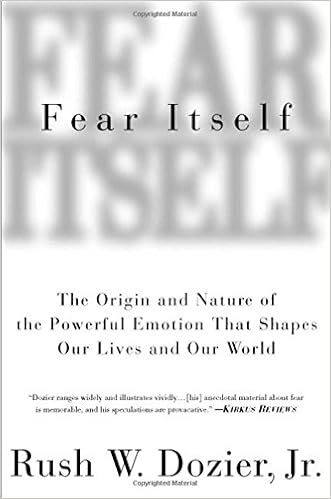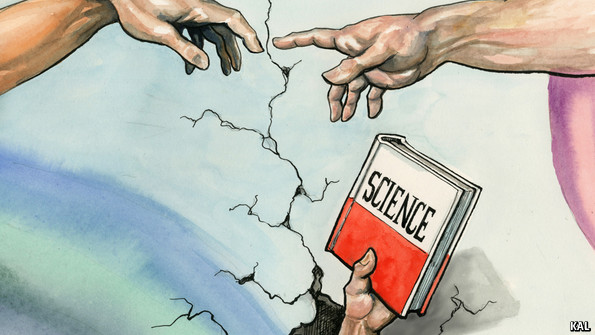Thomas L.'s AP English Blog
Sunday, April 17, 2016
TOW #24 - Text
In today's society, STEM (science, technology, engineering, mathematics) education is often prioritized over areas within the humanities. These are considered successful career areas because they are money-makers, while an education in the humanities is associated with unemployment and lack of income. This article from the Huffington Post, written by Carolyn Gregoire, challenges these stereotypes by demonstrating how education in the humanities is important and leads to success. First, the author points out that future income is not necessarily the best way to determine what is a good major, and that it is more important for students to study what they love as they will be more likely to work to success in that area. Then Gregoire spends the rest of the article supporting her argument with 10 examples of well-known figures who were humanities majors in college and who have since been very successful. Some of the people she cites include 2012 Republican presidential candidate Mitt Romney (English major), former CEO of HP Carly Fiorina (Medieval History and Philosophy major), famed author J.K.Rowling (French and Classics major), director Steven Spielberg (English major), and host of "The Daily Show" Jon Stewart (Psychology major). For each example, Gregoire included a picture of the person and a brief education and career history. Some of the people ended up in successful careers very different from what they actually studied in college. As Gregoire shows, the background education in an area of humanities gives students and wider experience base to build on later in life, one that can be applicable to many different areas. Philosophy major and co-founder of Flickr Steward Butterfield, another featured person, is quoted as saying "'...if you have a good background in what it is to be human, an understanding of life, culture and society, it gives you a good perspective on starting a business, instead of an education purely in business,'" (Gregoire par. 24). This quote helps to demonstrate how an education in the humanities can be important and useful no matter what career a student may end up in, while other career specific skills can be picked up in later training. Gregoire uses these ten people as living and, as the title says, "irrefutable" evidence that a humanities education is important to the future success of a student.
Sunday, April 10, 2016
TOW #23 - Visual
Cartoonist Grant Snider depicts the rise of the book of the future: really the regular paper books that we already have. In the nine panels, Snider describes how e-readers would, in a futuristic society, inspire the need to revert back to normal books. It makes an ironic statement by parodying the modern excitement of the e-reader. Though most people still read regular books, the e-reader fits into our generation of excessive technology. At this time we are continuing to develop technology, but the cartoon describes how we will be unsatisfied by that technology and and will "create" a new one in going back to our old "device". It parodies the promotion of a new technology by exemplifying the issues of an e-reader, including ones about which people regularly complain. It proposes a solution to that problem by presenting the book of the future, which is really the book of the past. This irony continues to be played out through the cartoon by noting how the book solves the problems of the e-reader in ways that we have already used and taken for granted. Overall, the cartoon amusingly achieves its purpose by reminding people that we already have what we need with our old "technology". Though in the last panel, the cartoon concedes that e-readers are more convenient for travel (especially by jet-pack, in the potential future) it ultimately reminds the audience that while e-readers are useful and good for somethings, in our excitement over them and need for technology, we should not forget the merits of a good, old-fashioned book.
Sunday, April 3, 2016
IRB #22 - Text
The Onion claims that you "are the center of everything" (par. 7) in their article and cleverly demonstrates the idea of narcissism in a satirical way by using drastic juxtaposition.
Throughout the writing, there are numerous examples of when you are compared with other people to illustrate how overly significant you are. Samuel Lerman, the study's lead author, specifically claims that "you are, in short, the only person who matters. The rest of us do not matter" (par. 4). Lerman further claims that while your words are "highly desired" and "desperately needed," other people's words are plain "monotony" and "meaninglessness," and that "what other people think or experience is completely irrelevant when compared to even the most minor thoughts and experiences in your everyday life" (par. 8). The juxtapositions used here are clearly exaggerated. No matter how important you may be, it wrong to say that the opinions of others are completely irrelevant, and that your existence is the most significant existence in the world. The juxtaposition in the article doesn't actually make you feel better about yourself; it allows you to question whether you are truly important to that drastic extent.
The Onion's article takes the quote "you are the hero of your own story" to a whole new level. By using drastic juxtaposition and overly positive diction, The Onion ingeniously attacks the idea of narcissism indirectly by placing the audience, you, as the main character of the article, because everyone knows that they cannot get enough of your ever-so-"gripping" story.
The Onion's article takes the quote "you are the hero of your own story" to a whole new level. By using drastic juxtaposition and overly positive diction, The Onion ingeniously attacks the idea of narcissism indirectly by placing the audience, you, as the main character of the article, because everyone knows that they cannot get enough of your ever-so-"gripping" story.
Sunday, March 13, 2016
TOW #21 - IRB
The second half of Fear Itself, written by Rush W. Dozier, was much less exciting than the first. Dozier used a wide variety of ways to explain the emotion of fear and its effects--ranging from the chemical composition and happenings in the human brain to personal experiences in his own life--in the first half of his book. Due to this variety, it was an interesting and unique read. However, he repeated those strategies for the remainder of Fear Itself, instead of applying new ones. It was almost like reading an autobiography rather than an extended explanation of everything about fear. Despite the lack of personal appeal, his rhetorical strategies were objectively effective. Through the application of real-life situations to the mechanics behind fear, Dozier made it easier for the reader to relate to his writing. For example, he describes a moment in which he is driving, and his life is threatened by a reckless driver. With this common example, Dozier analyzed the consequences of the adrenaline that would rush through our blood. Also, by avoiding the use of too much technical jargon and utilizing casual and easy word-choice, he makes his writing a reader-friendly environment. With the reader's comfort comes the reader's understanding of the subject at hand, which is critical for the description of the abstract concept of fear. Fear Itself wasn't the most pleasant read, but it was still a different experience and a great opportunity to reflect upon fear's effect on my life.
Sunday, March 6, 2016
TOW #20 - IRB
Fear Itself, by Rush W. Dozier, Jr, was definitely a unique read. I expected to read about about the emotion of fear from a completely objective view, but Dozier included his own experiences and studies within the facts and statistics he observed in order to explain the phenomenon behind fear. It was amazing to see all the different ways he used those experiences to explain the nature of fear and how it controls our decisions, lives, and ultimately, our world. He first began with a straightforward definition of fear by defining and describing it. Then, by inputting his own experiences and fascination of fear, he further explained its nature and effects on our minds and actions. Throughout the second chapter, Dozier mainly used scientific reasoning and facts to explain the biological process behind the emotion of fear. While his word choice, which generally consisted of medical jargon of parts of the human brain, made it hard to understand everything, Dozier showed his proficient knowledge in the subject. We live our lives with fear subconsciously controlling our actions, yet don't understand how it works, both biologically and mentally. By reading Fear Itself, Dozier can explain everything, from the changes in our brain and nervous system to the psychological effects.
Sunday, February 28, 2016
TOW #19 - Text
In “All About Adam,” the author, discusses the everlasting debate over evolution and creationism. They address how recent scientific evidence for evolution, particularly new evidence that shows that humans are not all descended from two individuals, is stirring up some problems for creationists. Scientific evidence is pushing the creationist envelopes and forcing some to turn to imperative ways to ensure faith in the Christian religion. Wheaton College, a Christian liberal arts school obliged their faculty members to sign faith statements declaring that God directly created Adam and Eve. The author noted that old-time religion has always been strong in America but the generation of the millennials, (those born between the early 1980s and 2000s), are drifting away from their stern and strict denominations. For example, this generation is more accepting of the LGBT community. The author’s purpose is to address the ongoing debate of evolution and creationism and to show how creationists are struggling with growing evidence of evolution and skeptical youth. The audience is Americans on both sides of the issue: creationists, perhaps to inflict some concern, and those who believe in evolution, to show a growth in that belief. This article is also for an international audience to learn about the pressing religious debate in America. One of the most effective rhetorical devices is a comparison between the trial that Galileo had for insisting that the Earth circled the sun and this current debate of evolutionism and creationism. When referring back to the history of Galileo’s trial, most people feel that the church was wrong because Galileo and science turned out to be right. By comparing this to modern day, the author challenges readers to consider whether creationism is similarly wrong. The author did achieve the article’s purpose by describing the conflict among creationists and by using statistics to illustrate the changes. Although it is not clear who wrote the article, The Economist is an internationally respected magazine. The use of statistics and quotes from religious scholars lends credibility to the article.
Sunday, February 21, 2016
TOW #18 - Visual
A very prevalent issue in today's society is our attachment to our smartphones and electronic devices. We, including me, hold to them so dearly and can find ourselves on them longer than not. Teenagers and young adults especially are constantly stuck to their phones, checking their Snapchat or making sure they get likes on their latest Instagram upload. On top of that, they're texting each other nonstop. In a cartoon by political cartoonist Steve Nease, a teenage boy is shown asking his father, "What's 'handwriting'?" The father, who is holding a newspaper that a has a headline that says, "National Handwriting Day - Jan. 23," is looking at his son, who appears to be in the midst of texting on his phone, in amazement. Nease juxtaposes the teenager with the teenager's father through the clothes that they are wearing and the thing in their hands. This creates a distinct difference between the teenager's generation and the father's generation by using stereotypes of how they act. He also uses the teenager's confusion to represent the majority of the current generation's lack of understanding of what it means to write by hand, instead of by phone. I find this cartoon effective on a personal level, because I too am guilty of using my phone and computer a lot. Although I don't really expect to change my habits and use my phone or computer less, it is a reminder of the direction our generation has already set a course for: a digital era. In some aspects, it's impossible to give up some electronics because of the way our global society, government, and economy are set up. They depend on our use of digital devices and wouldn't function otherwise.
Subscribe to:
Comments (Atom)




